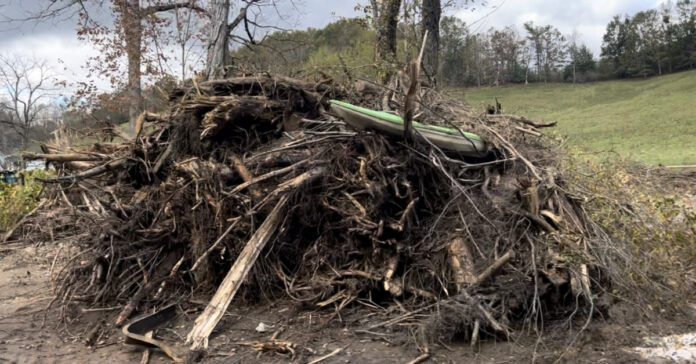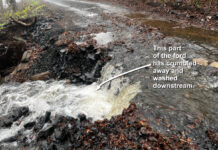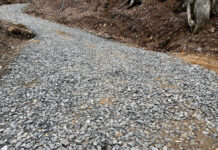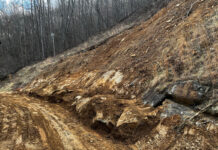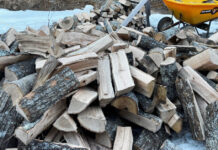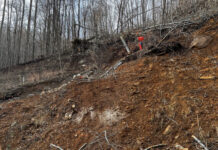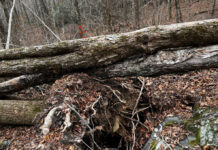Just a quick view of what things are like here at ground zero a month after Helene hit. These are my personal observations as we reconnect with people now that power and communications are back up, and we are finally able to move about the county in our borrowed truck:
- I visited a fellow beekeeper whose house was destroyed in the storm and gave him 32 pounds of honey to sell to raise some funds. He was living in a borrowed RV and was in surprisingly good spirits. I hope I would be that resilient if I were in his shoes.
- A friend told us she learned her water was back on when she heard the clunk of her ice maker dropping ice into the bin in her freezer. She ran to the kitchen and turned on the faucet. Sure enough, water came out. She is using it to flush toilets and do laundry, but is not yet confident enough in it to use it to bathe or drink. (She threw out the ice and turned off the ice maker.) Knowing many bodies of water still have raw sewage being poured into them and were contaminated by oil spills, people are leery of drinking water from municipal supplies. Some communities have boil notices but others don’t. Wells and springs above flood level are considered safe. We continue to offer water and showers to people.
- It is amazing how some areas are a wreck and others appear normal. You can drive down a road where the only sign of damage is fallen trees. Then the road dips down into a low area where the road goes over a stream, and there are piles of dirt and debris on the side of the road that had to be scraped off after the storm so that traffic could pass. In the next low spot, the road is suddenly gravel because the entire road washed away and he been filled in. All this within a two mile stretch.
- There are many temporary repairs being made to roads. In most places, you have to slow down when you hit one because the transition from asphalt to gravel can be sudden. I’m not against temporary repairs because no one would be able to move about without them, but they won’t last. These temporary repairs are already sinking and will need to be filled in again. But even if they were to patch them with asphalt, I expect they would sink. Many miles of roads or at least sections of road will need to be replaced. Hopefully, they will start next spring.
- People are also reacting differently. My wife has friends who want to get together for drinks or have dinner parties, not recognizing that this is the last thing some people want to do. It is causing some hard feelings between those who suffered little or no damage and those who are still trying to put their lives back together. You could argue it might be good to return to a semblance of “normalcy,” but that’s hard when your belongings are moldering in pile in the front yard, you still have a tarp on your roof, and the insurance adjuster still hasn’t shown up yet. People who evacuated and returned to town only after the power was back on don’t seem to understand what those who lived through it are feeling.
- We have friends who have two houses. In one of them, they have electricity, internet, and cell phone coverage but no water or sewer. In the other, they have electricity, a well and septic, but no internet or cell phones coverage. They are driving back and forth from town to their more rural home, depending on whether they want to bathe or communicate.
- Conspiracy theories and rumors abound. There are rumors some local water is contaminated by radiation from leaks caused by Helene. Some believe the storm was engineered to drive people away so corporations could harvest lithium supposedly found underground. If the latter theory is true, they underestimated the Appalachian people. They won’t be driven off their land. Most of them live on land that has been in their family for generations, on roads that share their last name, and near cemeteries where half the graves hold their kin. It’s going to take more than a tropical storm to remove them and more than a government check to buy them out.

